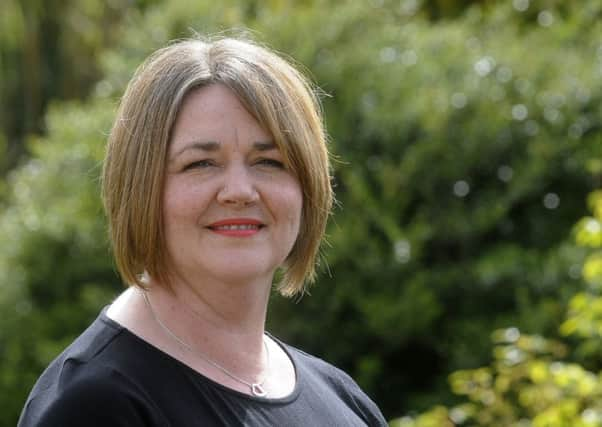Brain tumour mum: My diary saved my life


Julie Bostock, 50, started the journal as she tried to “write a better year”, after being flooded out of her home in St Michaels by Storm Desmond in December 2015.
But documenting her daily life turned into medical notes as she catalogued splitting headaches and uncharacteristic trips and falls.
Advertisement
Hide AdAdvertisement
Hide AdAnd after presenting doctors with her findings, it was revealed she had a large tumour on the side of her brain.
Julie, who has now recovered following surgery, said: “My diary was a big help to me throughout the experience.”
When her home was flooded in December 2015 she decided to put pen to paper and keep a journal on her experiences.
However, the jottings soon took a worrying turn when she started to chart severe headaches and falls among the notes and realised something was wrong.
Advertisement
Hide AdAdvertisement
Hide AdThe 50-year-old mum-of-two, from Blackpool Road, said: “It was a terrible shock because the survival rate is not good at all.
“After being flooded and then being told I had a brain tumour, it was the worst possible start to the year rather than the good one I was hoping to write.”
A brain scan in May 2016 revealed the director of teacher training had a tumour which the doctor told her could have been growing for years.
And while living in a rented house as her home was repaired, Julie began to notice her symptoms getting worse.
Advertisement
Hide AdAdvertisement
Hide Ad“Everyone at work kept telling me I was walking funny and I didn’t even realise,” she said.
“My headaches got worse, I was very tired and my vision was sometimes blurry but my neurosurgeon advised me not to have surgery.
“I kept making daily notes of everything that was happening to me and after showing them how much worse it was getting they decided I should go for the operation.”
On November 10 last year, surgeons at the Royal Preston Hospital (RPH) managed to remove the entire tumour - something Julie had been warned might be impossible.
Advertisement
Hide AdAdvertisement
Hide AdAnd her first entry in her diary after the operation - ‘I feel like I’ve won the lottery’.
The former psychology teacher said: “I feel really lucky because I had a wonderful experience at RPH.
“I was amazed because I felt better straight away and my headaches had completely gone. My diary was a big help to me throughout the experience.”
Julie, who lives with her partner Ralph, was back working at Ripley St Thomas CE Academy in Lancaster within three months and, after moving back in her Blackpool Road home, says she wants to help others in her situation.
Advertisement
Hide AdAdvertisement
Hide AdShe said: “I’ve spoken to the students about my experience and what to look out for because if anyone can benefit from what I went through then that’s important to me.
“I’ve also donated my tissue to help researchers and I’m determined to spread the word about the work being done by organisations like The Brain Tumour Charity.
“I feel very positive and I want to raise awareness and help people spot the symptoms as early as possible.”
Julie had a good start to her mission of writing a better year in 2017 after she was invited to a royal garden party at Buckingham Palace in recognition of her services to education.
Advertisement
Hide AdAdvertisement
Hide Ad“I’ve kept my diary going and it was wonderful to receive the invitation when I was recovering from my surgery,” she said. “Hopefully this year I can write the one I’ve been hoping for.”
Elvira Lekka, consultant neuroncology neurosurgeon at Lancashire Teaching Hospitals NHS Foundation Trusts, said: “Our team were pleased to be able to remove the tumour on Julie’s brain and it is great to hear that she is now doing well.
“We are also pleased that Julie has donated some of her tissue to research as this is something we are heavily involved with at Lancashire Teaching Hospitals NHS Foundation Trust, to help develop new treatments for the future.”